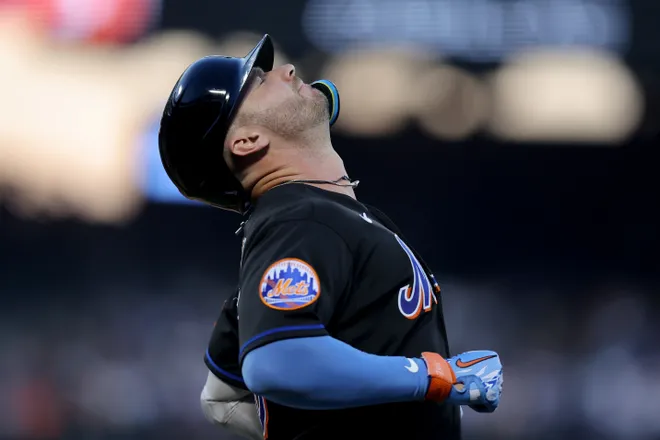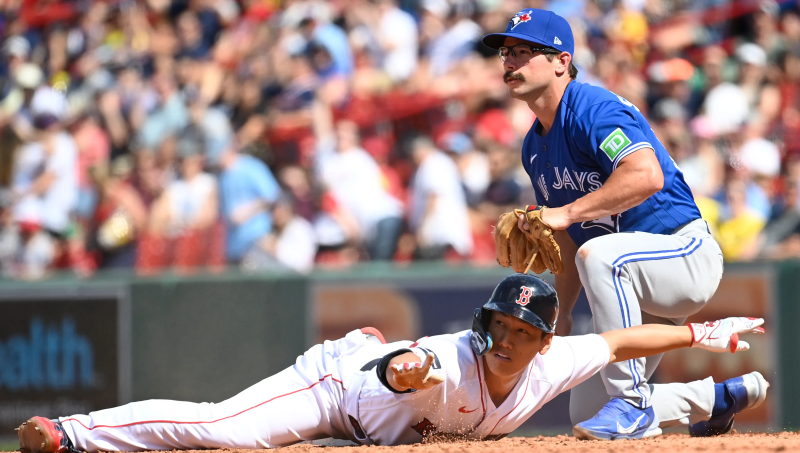Why did MLB's most expensive team flop? New York Mets 'didn't have that magic'
BALTIMORE — The book is not yet closed on Steve Cohen, who may eventually fuse his financial might and almighty desire to win a World Series with desired results. One day, perhaps, the New York Mets owner will prove that you can, in fact, buy a championship.
Yet as the legacy of his 2022-23 Mets comes into view, and baseball anthropologists pick over the remains of the most expensive team in the game’s history, the answer may still prove elusive.
It’s not money: Cohen invested $501 million on offseason improvements, fielded $365 million worth of talent and will commit close to half a billion dollars in payroll and taxes this season.
It’s not talent: Cohen hired a pair of Hall of Fame pitchers each of the past two offseasons, and while Max Scherzer and Justin Verlander battled injury, one two-week suspension and their professional mortality, they largely performed as asked in Queens.
Perhaps, if these Mets proved anything, it’s that you can’t simply outspend baseball – the industry, sure, but not the rhythms and whims of the game.
FOLLOW THE MONEY: MLB player salaries and payrolls for every major league team
You can’t buy good sequencings. Nor concoct a chemistry by checkbook.
There’s no statistical column for je ne sai quois. But just like when you know a team has it, it’s equally glaring when a club doesn’t.
And these Mets never did.
“You have to play good baseball and you have to be clutch and I think some teams just have that sort of magic where they have the ability to win close games and in all kinds of different ways,” says outfielder Mark Canha, now a Milwaukee Brewer after Cohen’s trade deadline selloff waved a white flag on this season.
“And we just didn’t really have it during my time with the Mets.
“We’re obviously a good team. We have a lot of talent. And we just didn’t have that magic, and that was frustrating. Because we all liked playing so much. We wanted it to work so bad. And it just didn’t.”
The consequences were swift.

‘They made a bet’
The Mets were 48-54, 17 games out of first and needing to vault five wild card teams when closer David Robertson’s trade prompted Scherzer’s desire to talk to the club’s “brass.” Soon, he was gone to the Texas Rangers, leaving Verlander as a high-priced domino just waiting to tumble. And when the club acquiesced to his choice for a trade back to the Houston Astros, the two aces earning $43.3 million per season were gone.
The landscape left behind is grim. The Mets have lost all six games since deadline day, including a ghastly sweep at Kansas City. Canha and outfielder Tommy Pham (traded to Arizona) created outfield vacancies filled by journeymen, while the players committed beyond this year are left to play out the string.
It is an uncertain near term, with Scherzer detailing Cohen’s plans to gear more for 2025, leaving next year wrapped in uncertainty. After getting three hits in the middle game of a weekend sweep by Baltimore, outfielder Jeff McNeil acknowledged that it is “tough losing some of your best players. It hurts.”
EYE ON THE FUTURE:Here are the most popular MLB future bets in 2023
Just as it’s debatable whether to have loved and lost, going all-in can be wonderful if it works, uglier when it goes awry. Even with Jacob deGrom sidelined most of 2022, those Mets won 101 games, yet the season felt like a failure when the Atlanta Braves rallied to match their win total, capture the division and the Mets lost a three-game wild card series to San Diego.
Now, those look like the good ol’ days.
“Given the situation within the organization, they made a bet and had a lot of reason to make that bet,” says reliever Adam Ottavino. “Spent a lot coming into last year and it worked out beautifully for us in the regular season. It’s exciting, what every player wants to be a part of – going for it.”
And then what happened?
Ugly June 'ruined our chances'
There’s no shortage of ways to quantify a team’s actual production. The popular Pythagorean win-loss record, based on run differential, say, is ostensibly a more accurate reflection of a team’s performance.
But even the ol’ Pythag can’t account for poor sequencing – and the Mets’ middling season was officially buried by both the causes and the timing of its most hideous segment.
On June 1, New York was 30-27 and just 3 ½ games out of first place after beating Philadelphia. But the trap door was about to open.
The Mets lost their next seven games and nine of their next 10. Their NL East hopes were effectively snuffed when they went to Atlanta and blew leads of 4-0, 4-1 and 6-3 in getting swept. They lost eight of 10 to finish the month and 19 of 26 overall.
Yet in that fateful 26-game stretch, the Mets were outscored by just 11 runs. As Mark Simon of Sports Info Solutions points out, the San Francisco Giants had a recent 26-game stretch when they were outscored by 19 runs.
They went 13-13 and are very much still in it.
“We just had one bad month – June – where we just couldn’t win a series,” says Canha. “It felt like a whole bunch of games strung together of having opportunities to win games and not getting those one or two clutch hits we needed to push through.
“It was a really bad month and it kind of ruined our chances to be buyers at the deadline.”
Indeed, the Mets were basically cooked by that maddening mouth, even after winning six in a row to start July. It was the worst month at the worst time, inspiring Cohen to sell.
Another thing about baseball: You can’t choose when you might suck.
“Shoot, if it happened at the end of the year, we probably would’ve been in it the whole way, and it would’ve been a collapse,” mused Ottavino. “And if it happened at the beginning of the year, we would’ve been gaining momentum. And maybe it would’ve been different then.
“Timing’s important in life in a lot of things, right? Clearly in baseball. It’s just the way it is. Things happen in sequences. They either favor you or don’t in baseball.
“You get eight hits in a game but if they’re not sequential, you don’t score.”
‘Maybe you try something else’
Nowadays, any hits are hard to come by. The Mets, manager Buck Showalter noted, started five players Sunday who’d spent time at Class AAA Syracuse this season; they were shut out 2-0 by Baltimore and have scored three or fewer runs in five straight losses.
Twisting the knife a bit, offseason acquisition Jose Quintana pitched into the seventh inning and gave up three or fewer runs in each of his last 18 starts. It is why the Mets gave him a two-year, $26 million deal in the winter.
Yet Quintana required March surgery to repair a lesion on his ribs and did not debut until July 20, one week before the sell-off began.
Timing. Money can’t buy that either, and now the Mets have plenty of it: Two months to play out the string, a few more months before the free-agent bazaar might tempt Cohen’s checkbook again, maybe a transitional year to mull whether to go great guns again.
And ponder the hows and whys of two very expensive seasons of great promise that netted virtually nothing.
“To a certain extent, if something doesn’t work, you want to change,” says Canha. “(Cohen) is a smart guy and Billy Eppler is a smart guy. I think they’re just taking a step back and saying ‘OK, how do we rework this strategy?’ If something doesn’t work, it’s obviously not the only way to do something. Maybe you try something else.
“Obviously, this season is not going the way the Mets planned. I’m sure they’ll find a way to be competitive. There’s always time to figure it out.”
Just not this year.

Disclaimer: The copyright of this article belongs to the original author. Reposting this article is solely for the purpose of information dissemination and does not constitute any investment advice. If there is any infringement, please contact us immediately. We will make corrections or deletions as necessary. Thank you.







